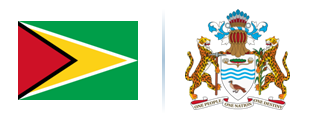Last Update: September 2025


| International Covenant on Economic, Social and Cultural Rights | International Convention on the Elimination of all Forms of Racism | Convention on the Rights of Persons with Disabilities | Convention on the Elimination of all Forms of Discrimination against Women | Convention on the Rights of the Child | International Convention on the Protection of the Rights of All Migrant Workers and Members of their Families | Constituent Agreement of the Development Fund for Indigenous Peoples in Latin America and the Caribbean |
| 15 February 1977 | 15 February 1977 | 10 September 2014 | 17 July 1980 | 14 January 1991 | 7 July 2010 | 4 March 2026 |
| View details | View details | View details | View details | View details | View details | View details |
Year of Latest Observed Constitution |
Social Housing |
Work and Social Security |
Public Health |
Public Education |
Social Development |
Children and Adolescents |
Youth/Young Adults |
Women |
Older Persons |
Persons with Disabilities |
Afrodecendants and Indigenous Peoples |
Migrants |
| 1980 | ||||||||||||
| View details | View details | View details | View details | View details | View details | View details | View details | View details | View details | View details | View details |
Children and Adolescents |
Youth/Young Adults |
Older Persons |
Women |
Peoples with Disabilites |
Afrodescendants and Indigenous Peoples |
Migrants |
Public Education |
Work and Social Security |
Social Housing |
Public Health |
Social Development |
|
| Legal Instrument | Estatuto del Niño | n.d. | n.d. | Ley de Igualdad de Derechos 1990 | Ley de Personas con discapacidad | Guyana Act No.11 | Immigration Act, Chapter 14:02 (1947) | n.d. | Ley de Seguridad Social y Seguro Nacional | Ley General de Vivienda | Ley General de Servicios de Salud | n.d. |
| Law | Law | Law | Law | Law | Law | Law | Law |
| Country | Guyana |
| Main authority | |
| Year of creation | |
| Coordinating authority | |
| Members |
| Country | Guyana |
| Main authority | Ministry of Human Services and Social Security |
| Year of creation | 2015 |
| Mission | El Ministerio de Servicios Humanos y Seguridad Social está comprometido con el desarrollo sostenible y la rehabilitación de los niños, las mujeres, las familias y los ancianos, y brinda capacitación y servicios / programas sociales y de bienestar a personas en circunstancias difíciles y personas desfavorecidas. |
| Incumbent | Vindhya Persaud (2020) |
| Population segment | Children and Adolescents |
Youth/Young Adults |
Older Persons |
Persons with Disabilities |
Women |
Migrants |
| Main protection mechanism | Ministerio de Educación –Departamento de cultura, juventud y deporte | National Commission on Elderly - Ministry of Labour, Human Services and Social Security | Oficina de Asuntos de la Mujer - Ministry of Labour, Human Services & Social Security | Ministry of Foreign Affairs | ||
| Legal Instrument | Immigration Act, Chapter 14:02 (1947) |
|
Technical-operational dimension | |||||||
| Unique Registry of Participants | Sistema Integrado de Administración Financiera /b | Sectoral Plan for Social Development | Transparence - system for accessing public information from the State | Integrated Social Information System |
Evaluation mechanisms for social programs |
|||
General |
Sectorial |
General |
Sectorial |
|||||
| Ministry of Human Services and Social Security | ||||||||